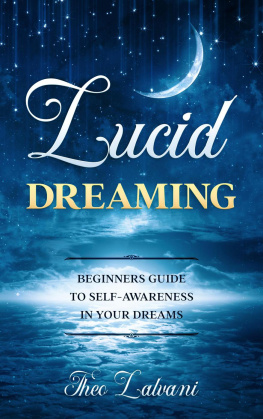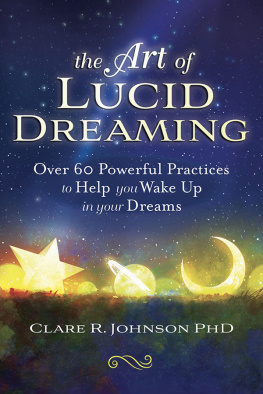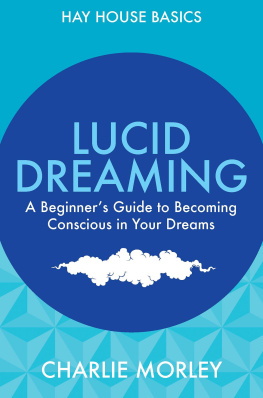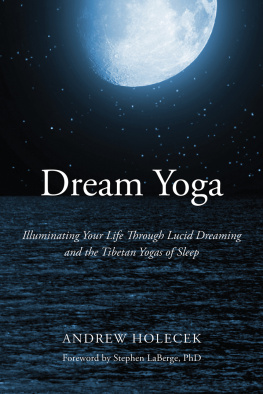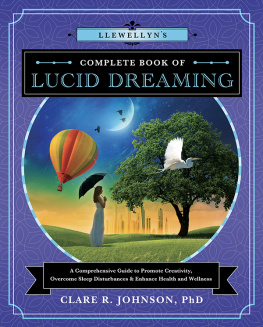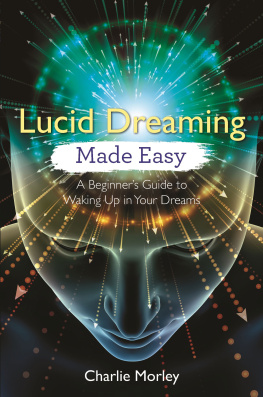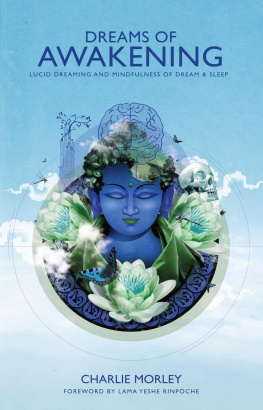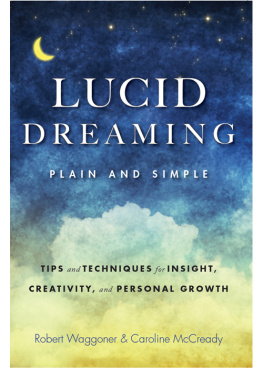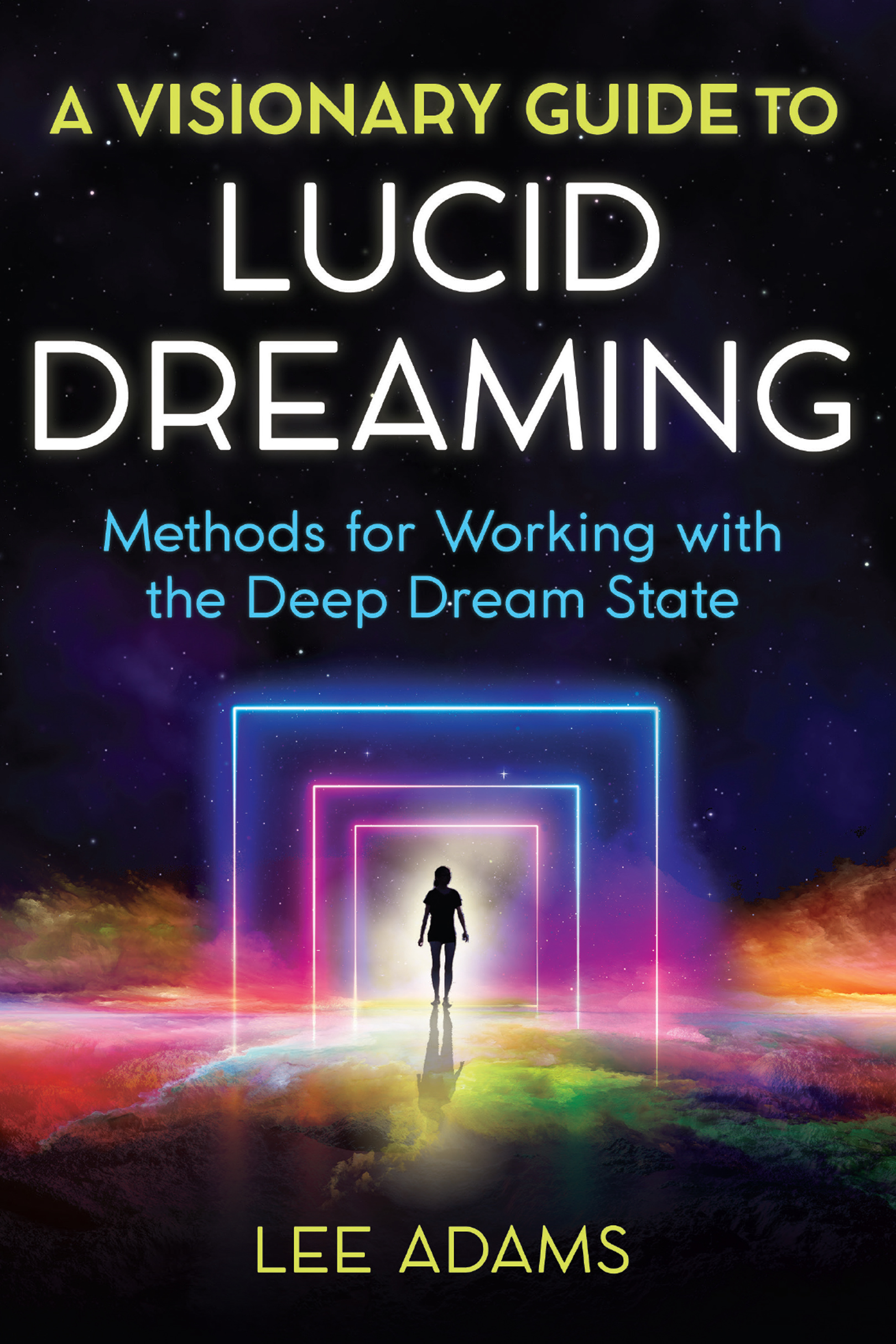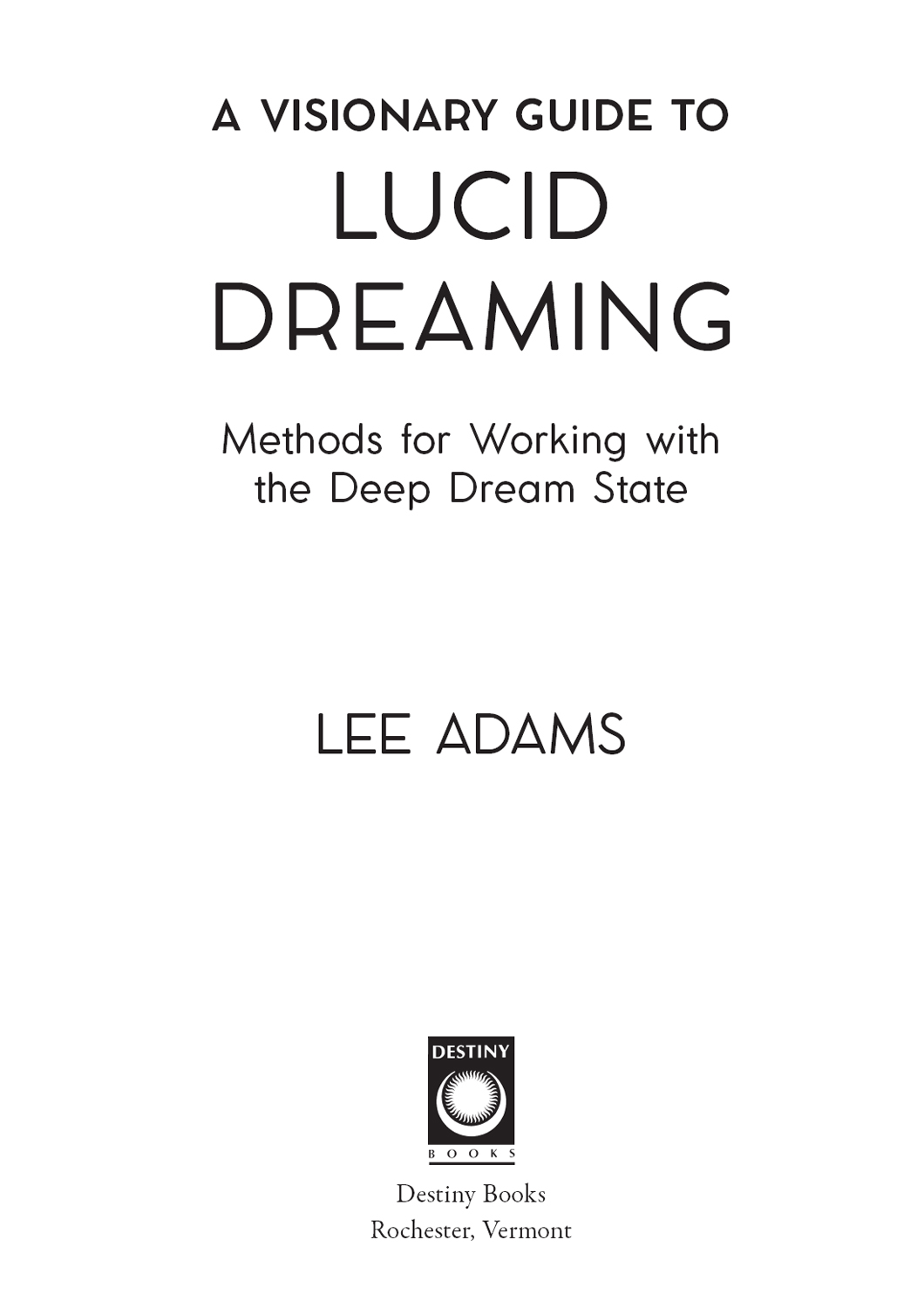
This book is dedicated to all the lucid dreamers and researchers who came before me.
Their work has enabled me to dive deeper than I ever would have.
A VISIONARY GUIDE TO
LUCID
DREAMING

When you fall asleep at night, your mind doesnt just turn off like a light with the flick of a light switch. On the contrary, it enters a different and, at times, highly energetic mode of functioning. Lee Adams has written an excellent guide to exploring the dynamic powers and creative potentials of your own nocturnal brain. This book provides a wealth of detailed information and practical guidance for anyone interested in lucid dreams and the multiplicities of the dreaming imagination. Adams offers what few other writers about lucid dreaming are able to provide: a sensible and humble approach, grounded in empirical research, that encourages people to go beyond the mere attainment of lucidity to explore the deeper realms of the psyche.
KELLY BULKELEY, PH.D.,DIRECTOR OF THE SLEEP AND DREAM DATABASE AND AUTHOR OF AN INTRODUCTION TO THE PSYCHOLOGY OF DREAMING
This is the first book on lucid dreaming that not only covers the science and art of going lucid but also how to work with the deep mythological aspects of lucid dreams. It shows you how to have more lucid dreams and how to navigate them successfully as we consciously wake up to our own mythic lives.
RYAN HURD,DREAM AND SLEEP RESEARCHER AND LECTURER IN HOLISTIC STUDIES AND PSYCHOLOGY AT JOHN F. KENNEDY UNIVERSITY
Lucid dreaming should no longer be seen as something esoteric, difficult, or available only to those with special talent. Astonishing adventureshero journeysare available to all of us on a nightly basis if we choose. A Visionary Guide to Lucid Dreaming is an accessible and entertaining resource with advice on everything from supplements that can help achieve lucidity to interpretive methods for working in and with the dream world.
ERIC WARGO,AUTHOR OF PRECOGNITIVE DREAMWORK AND THE LONG SELFAND TIME LOOPS
This delightfully bold and truly unique guide is a powerful tool for both new and veteran mind explorers, offering ways to learn more about their nighttime adventures and themselves.
DAVID JAY BROWN, AUTHOR OF DREAMING WIDE AWAKE
Acknowledgments
This book is the natural result of many articles, blog posts, and studies Ive done over the many years of my dream work so far. Taking that journey and documenting it would not have happened without the support of many people. First, thank you to my longtime friend and mentor Ryan Hurd, for helping me to understand dreams and their importance to my personal life. Huge thanks to my wife, Kristie, who has kept me grounded while Ive explored my dreams and sometimes acted a little crazy. To my mother for helping me always know that dreams are important and to listen to their messages, regardless of how outlandish they seem. To my colleague and life coach Richard Guinn, for his help in teaching me the importance of self-discovery. I would like to thank my Buddhist teacher and friend Jay Feldman for being a wonderful help in accepting my shadow. I would like to thank Meg Ryan for her help in editing this book and turning it into something that could be readable and informative to all.
And importantly, thank you to the Taileaters online community. Your enthusiasm and contributions have inspired me, challenged me, and helped me to grow as a thinker, writer, and dreamer.
Join other oneironauts to talk about dreams and dreaming at taileaters.com/discussion.
PREFACE
An Invitation to the Heros Journey
I met a guy who told me he was an exile transcendentally engaged with an alchemy of invisible worlds, too engrossed by far to remember his country, the ache of all he had to leave behind, enflamed nightly by his nameless supernals, enflamed nightly by his impossible task, and I thought why not?
DARREN HUGHES, SHARED VIA PERSONAL COMMUNICATION
I am a dreamer and have been all my life. I have always enjoyed having and discussing dreams and hearing about other peoples amazing adventures. Throughout life, distractions and responsibilities naturally come up that have taken me away from my dream work, but Ive always come back to it. Somehow, it feels as if something is missing from my life when Im not paying attention to my dreams. To me, dreams feel essential, and listening to them is a spiritual practice.
Dreams can have extreme impacts on our lives if we choose to listen to them. Some dreams can make a major impact; they are often called big dreams because they make such a lasting impression. Understanding and incorporating these dreams into our daily lives, implementing the changes that they sometimes ask us to make, and sharing these experiences with others can ultimately change our sense of reality.
Perhaps like many of you, Ive been able to lucid dream since I was quite youngI just didnt realize that was what it was. These dreams have ranged from minor experiences that last a few moments to experiences that go on for what seems like hours, from merely being aware that I am dreaming to having full-blown conversations with characters in my dreams or trying to control the physics of the dream environment.
When I was young, most of the people around me disregarded dreams as mental noise. However, my mother, who is a deeply religious person, explained to me that dreams played an important role in prophecy and encouraged me to look for meaning in mine. Still, I felt a disconnect between how important my dreams felt and any impact they might have on my waking life. I wanted to close that gap.
And yet, making that leap was a scary prospect, and my dreams told me as much. The first big dream I remember hinted at the task ahead of me:
I am walking through a college campus or schoolyard and see a large building. I become aware that I am dreaming when I recognize that the chapel I am looking at does not exist in the real world. I walk into the chapel, and it opens up into pews full of people working. I ask a few students what theyre doing, and they respond that they are doing homework. They seem friendly and open to answering my questions.
This dream helped me to see that there is more going on behind the wakeful consciousness in the higher areas of the unconscious, which I call the Self.
It would be years before I fully accepted the challenge. I felt conflicted about incorporating the messages I felt my dreams were giving me. They didnt line up with my worldview at the time, which was a mixture of stubborn adherence to the scientific method and inherited monotheistic beliefs.
It wasnt until I dove into Jungian psychology and Joseph Campbells work that I started to fully realize the similarity between my dream experiences and the themes and archetypes described by these two thinkers. Campbells idea of the Heros Journey accurately summarized my dream experiences. He calls the Heros Journey a magnification of the formula represented in the rites of passage: separation-initiationreturn. His definition may be more simply described as an adventure on which the hero embarks. A crisis initiates the journey, then the Hero overcomes an adversary, and then he or she finally returns, changed in some way. Jung called this process individuation, by which he meant the complete actualization of the whole human being through bringing the conscious and the unconscious into balance.


